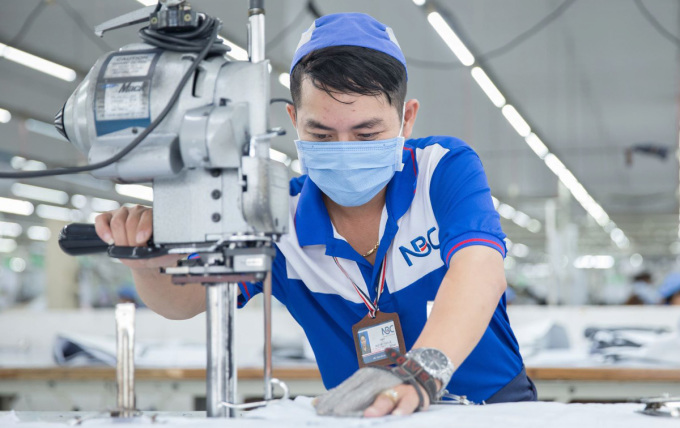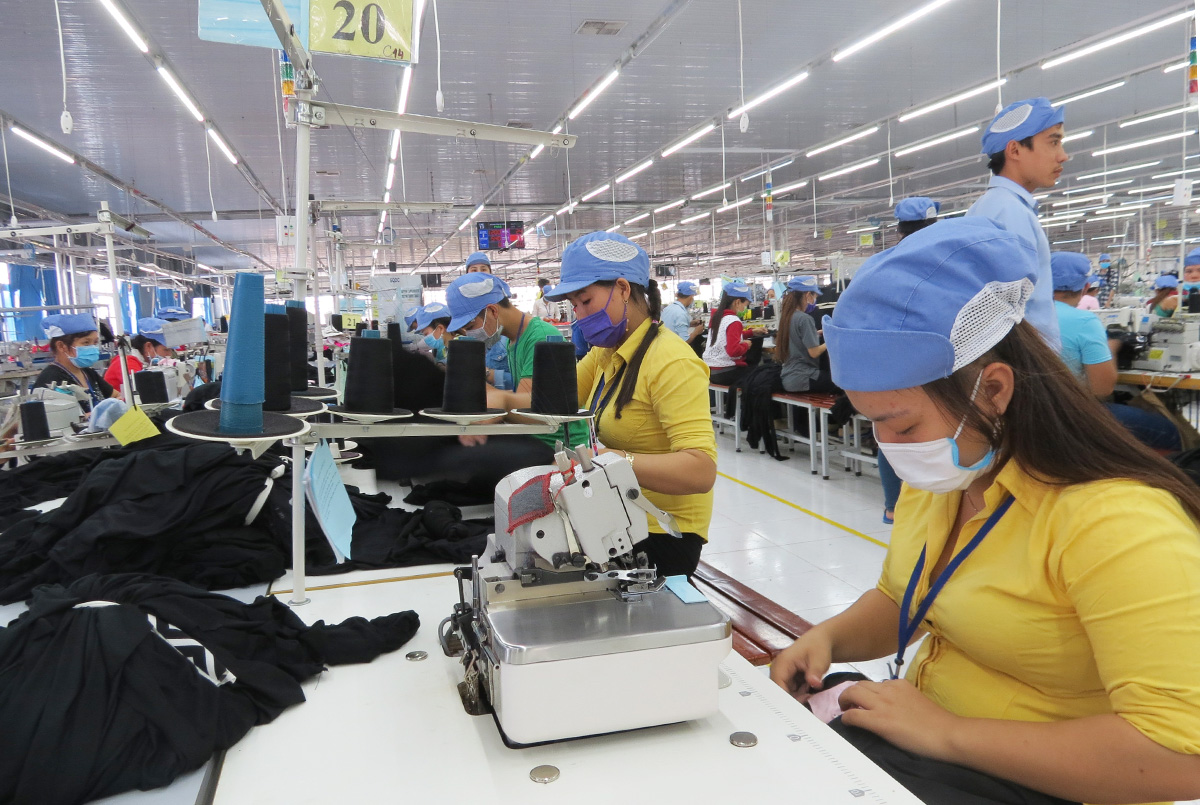Many HCMC manufacturers are expanding to other localities, especially the Mekong Delta, to utilize a readily available labor force.
There remains a shortage of thousands of workers in large cities due to the usual post-Tet phenomenon of people staying back in their hometowns but also because of Covid-19 and the increasing cost of living.
Garment maker Nhabe Corporation is offering salaries of VND10-15 million ($440-660) a month plus bonuses at its plant in HCMC’s District 7, relatively high in the industry, to attract workers since production has recovered.
“However, recruiting workers in the city is never an easy task,” Le Thi Ha Chi, deputy director of the company said.
 |
|
A worker at Nhabe Corporation’s factory in HCMC’s District 7. Photo by VnExpress/An Phuong |
Thus, the plant has yet to be fully staffed despite months of effort though the shortfall was just 20 percent, the lowest rate in any of the company’s factories.
Its plants in other localities received two to three times the number of applicants in the same period, and VND7 million is the average monthly wage, Chi said.
Nhabe has been expanding into 10 provinces in the Mekong Delta and Central Highlands and on the central coast in the last five years so much so that only 25 percent of its 20,000 workers are in HCMC.
This has helped the company lower labor costs and enhance its competitiveness, Chi added.
Garment maker Samho Vietnam in HCMC’s Cu Chi District also built a new plant in the delta province of An Giang to attract workers.
Do Truong Hoang Phuc, its head of human resources, said the An Giang factory receives up to 100 applications a day, triple the number in HCMC.
It has been fully staffed since the beginning of March, and is now hiring for the HCMC plant, he added.
Vice chairwoman of the Vietnam Textile and Garment Union, Nguyen Thi Thuy, revealed that most textile companies are planning to expand into provinces, and this should help them resolve their worker shortages while reducing labor costs.
But she also warned companies about pitfalls they could face in rural areas.
Many workers live with their families and close to their extended families, and so frequently take days off, she said.
Transportation is other major concerns since ports and hubs are far away and roads are often poor, she added.
 |
|
Workers at Vinatex factory in Mekong Delta province Bac Lieu. Photo by VnExpress/Le Tuyet |
But public policy expert Nguyen Quang Dong viewed the movement as beneficial for society.
The pandemic outbreak has exposed the gaps in support policies for migrant workers in cities, and so for them to work close to their hometown would be of benefit both to themselves and their employees since it reduces the risks of disruptions at the workplace.
“Workers have been paying prices for 30 years of industrial development. This must end soon”.
Low wages and high living costs drove workers back to their hometowns at the peak of the pandemic and kept them from returning though the outbreak has been brought under control, he said.
He called on the government to take measures to move factories to provinces so that workers could remain close to home like increasing investment in infrastructure and providing low-interest credit to build new factories.
He also said labor-intensive industries should be moved out of urban areas, which would then be forced to focus on technology and highly skilled workers.
- Reduce Hair Loss with PURA D’OR Gold Label Shampoo
- Castor Oil Has Made a “Huge” Difference With Hair and Brow Growth
- Excessive hair loss in men: Signs of illness that cannot be subjective
- Dịch Vụ SEO Website ở Los Angeles, CA: đưa trang web doanh nghiệp bạn lên top Google
- Nails Salon Sierra Madre
 VnExpress News The News Gateway of Vietnam
VnExpress News The News Gateway of Vietnam




